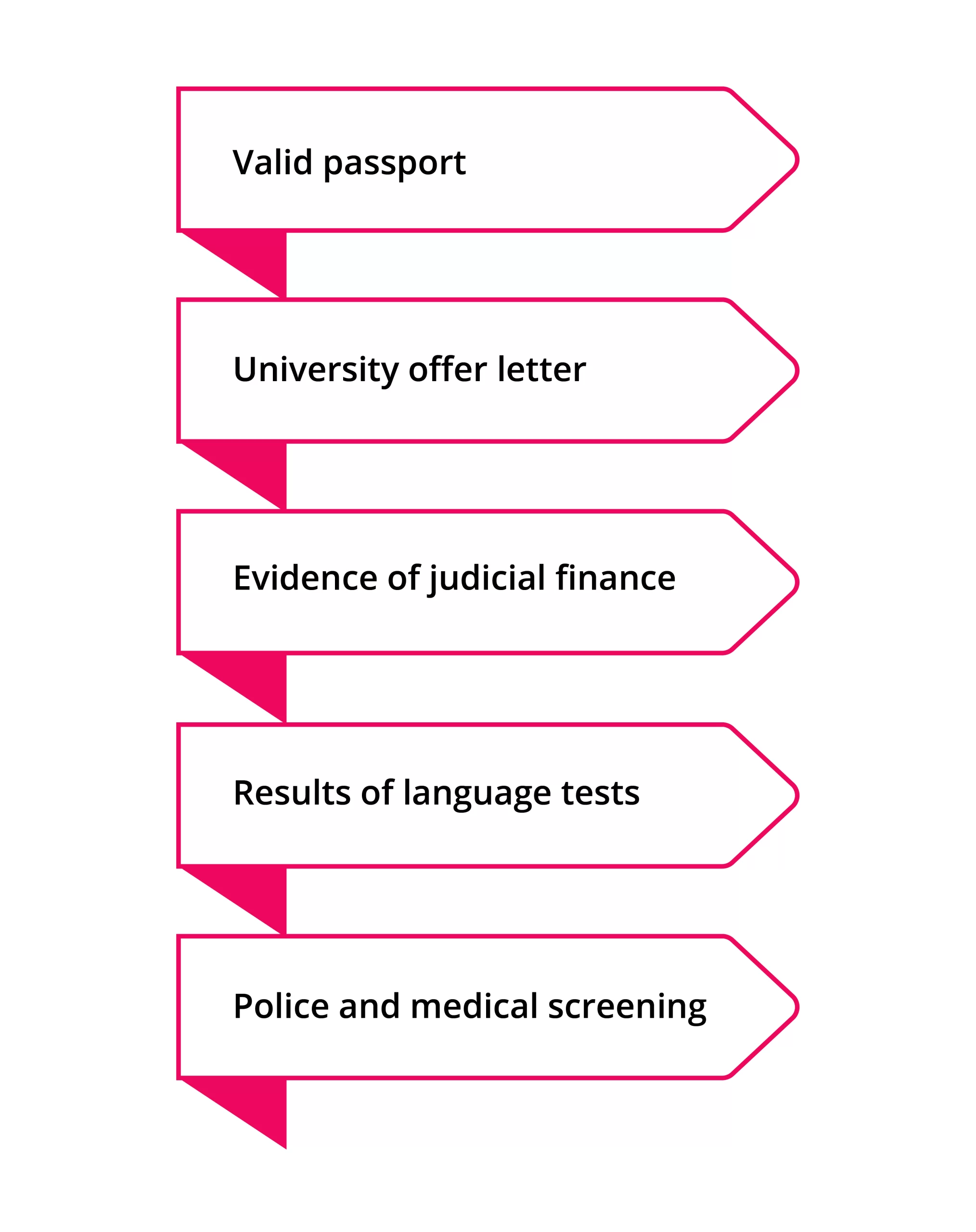Hotel Management Courses Abroad: Top Countries, Career Pathways & The Ultimate Guide
Studying in a Foreign Country: A Complete Guide for 2025

Studying abroad is not merely an academic pursuit but a life-changing experience that reshapes your personal, professional, and cultural outlook.
As thousands of International Students choose to pursue higher education in foreign countries each year, the popularity of global education is reaching new heights.
Whether you aim to earn a reputable degree, enhance your future career prospects, or experience diverse cultures, studying abroad opens the gateway to a world of endless possibilities.
To equip you with all the essential knowledge about Studying Abroad in 2025, this all-inclusive guide explores the pros and cons, the best destinations to consider, visa requirements, common challenges, and how to adapt to life as an international student.
Reasons to Study in a Foreign Country
Students are advised to check out the reasons to Study in a Foreign Country:
1. World Level Education
Foreign universities are well known to accept high-quality education, advanced research and internationally recognised degrees. Countries such as the USA, UK, Canada, Australia, Germany, and the Netherlands have their institutions which are regularly ranked as some of the best in the world.
2. International Career Prospects
International graduates are competitive in the global job market. The experience of studying abroad can give you an international outlook, cultural versatility as well as good communication skills, which are much sought by employers all over the globe.
3. Independence and Personal Growth
Experiencing a new country gets you out of your comfort zone. You teach yourself how to find your way out of difficulties, develop resilience and understand yourself better. Budgeting and cooking, handling academics and a part-time job, all add to your personal growth.
4. Cultural Exposure
International education also gives you a chance to experience other cultures, languages, and lifestyles. It can be a pleasure to enjoy traditional food, experience local holidays, or meet people worldwide; the experience of such adventures makes your world richer.
Best Countries to Study Abroad in 2025
As far as the destination is concerned, it will be up to you on the course and your budget, language preference and the possibility to work after the study. These are some of the most popularly attended countries by international students:
1. Canada
With a well-known friendly atmosphere, a mixture of culture, and great education, Canada is considered to be one of the choices. Such cities as Toronto, Vancouver, and Montreal present beautiful student life, low tuition and good chances to work after the study.
2. United States
The U.S. has an academic ecosystem that cannot be matched with the academic environment of Ivy League and other top-ranking universities. Its offering of numerous courses, state-of-art research and high employment rates make it the dream destination for many.
3. United Kingdom
The UK is known to be the hub of academic excellence and one-year master’s programmes. The cities that have some good cultural experiences as well as good education are student-friendly London, Edinburgh and Manchester.
4. Australia
Australia has low-stress-life, breath-taking scenery, and universities that are among the top 100 in the world. The most popular courses involve the areas of healthcare as well as business, engineering, and environmental sciences.
5. Germany
Germany is a favourite destination for STEM programmes with free or affordable tuition fees at state institutions of higher learning. It has solid industrial connections and a high employment rate making it a perfect place to be in case one is into engineering and technology.
6. Netherlands
The top reason why people choose the Netherlands have to do with English-taught programmes, innovative learning settings as well a good quality of life. It is especially appealing to those students who are studying business, law or social sciences.
Studying Abroad Process
The application process depends on both the country and the university and will usually consist of the following steps:
1. Universities and Courses Shortlist
You can use search filters related to your academic background, interests, and future targets to find the right options.
2. Academic Document Preparations
Usual documents needed are:
- Academic transcripts
- Recommendation letters
- Statement of Purpose (SOP)
- Resume/CV
- IELTS, TOEFL, GRE, GMAT, etc.
3. Do Language Proficiency Tests
A high number of countries are demanding English language proficiency. The most well-received tests are:
- International English Language Testing System (IELTS)
- TOEFL (Test of English as a Foreign Language)
- Duolingo English Test (Admission is recognised by a variety of universities as a practical and cost-effective choice)
4. Submit Applications
A majority of universities offer an online application site. Make sure that the deadlines are met and the documents are correctly uploaded.
5. Apply for Scholarships
Start working on scholarships early enough. Merit-based, need-based and course-specific scholarships exist in universities, governments and the private sector.
Student Visa Process: What You Have to Know
After getting your offer/acceptance letter, you should then Apply for a Student Visa. The requirements also vary depending on:

Challenges of Studying in a Foreign Country
Although studying abroad is a good experience, it also has its challenges:
1. Culture Shock
Getting used to new traditions, cuisine, and culture might be overwhelming. To facilitate the change, remain open-minded and connect with the local communities.
2. Homesickness
It is normal to miss family and a familiar environment. Maintaining a digital presence and creating a support group of friends can be helpful.
3. Academic Pressure
New expectations may be different in education systems. Find an advisor, go to orientations and time management.
4. Financial Stress
Sound budgeting and even part-time work possibilities can help relieve the economic pressure.
5. Visa problem or Law problems
Never forget to know your visa status and make sure your documents are updated.
Student Life in a Foreign Country
When you find yourself studying in a foreign country, it is not only a business about lectures and exams. That is what may happen to you:
Student Clubs and Communities: There are a thousand and one clubs to join, depending on your interest, say arguments and technology, but there is also cultural or volunteer work.
Festivals and Events: Attend campus events, international nights and big city festivals.
Travel chance: Visit the neighbouring cities or countries on holidays.
Internships and Networking: Go out there to meet people at the career fairs, career workshops and career seminars.
Conclusion
Studying in a foreign country is not only an academically focused venture in an increasingly globalised world, but also one that can be a strategic move that can determine your future. Whether it is to gain access to high-end education and the opportunity to do groundbreaking research, to develop a professional global network and strengthen your career growth, studying abroad is an eye-opening experience that enables you to shine in the modern competitive world.
Certainly, it may appear overwhelming. University application and language tests are just the beginning as one has to deal with visa procedures and the new culture shock, among other things. However, through the appropriate leadership, adequate preparation, and a proper route, it is an easy and empowering process.
At MetaApply IE, we have assisted thousands of students like you to open the doors to their dream of attending the best universities in Canada, Australia, the UK, Europe etc. We do all the work, making the whole process easier, smarter, and faster, whether it is shortlisting the universities, assisting you with your SOP, Visa work, accommodation, or even flight booking.
Frequently Asked Questions
It is possible, in fact, depending on the country and university, but there is more accessibility to scholarships, part-time work and financial aid available.
English proficiency exams such as IELTS, TOEFL, or Duolingo, and in other cases in standardised tests such as GRE, GMAT, or SAT.
Yes, most countries permit 15-20 hours of part-time positions per week during the academic periods.


















































